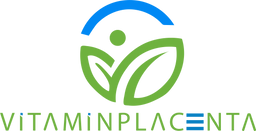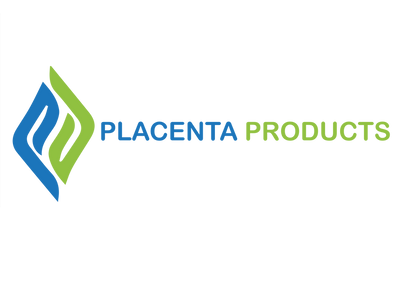A Natural Supplement to Help You with Sleep
Find out if Eating Placenta offers Insomnia Relief
Placentophagy—the act of consuming the placenta after childbirth—has gained popularity in recent years, especially among new mothers seeking to boost recovery and improve wellbeing. One emerging area of interest? Sleep. As sleep disorders and insomnia affect millions, many are exploring whether placenta encapsulation could be a natural remedy to support rest, improve circadian rhythm, and help manage postpartum sleep disruptions.
In this post, we break down the science behind placentophagy, what placenta pills are, and how they might support better sleep. There are studies that have shown that the placenta does produce melatonin, which is a key hormone in sleep regulation. So there is a scientific basis for the idea that the placenta contains a substance that could aid sleep. Read about the current research so you can decide for yourself.

What Is Placentophagy?
Placentophagy refers to the ingestion of the placenta—typically through encapsulated supplements—after childbirth. While common in the animal kingdom, this practice in humans has surged in popularity only in recent decades.
The placenta is rich in hormones, nutrients, and bioactive compounds, including:
-
Estrogen and progesterone
-
Corticotropin-releasing hormone (CRH)
-
Oxytocin
-
Prolactin
-
Iron
-
B vitamins (especially B6 and B12)
-
Placental opioid-enhancing factor (POEF) [1]
These elements are believed to offer various benefits, from mood stabilization to increased energy and milk production. Sleep support is a newer and lesser-explored benefit, but one gaining momentum.

Why Is Sleep So Disrupted Postpartum?
Sleep deprivation is almost a rite of passage for new parents. But for many women, the problem goes deeper than middle-of-the-night feedings.
After childbirth, a woman’s hormone levels drop sharply—especially progesterone, which plays a known role in sleep regulation [2]. Combine that with stress, emotional fluctuations, and physical recovery, and it’s a recipe for insomnia.
Circadian rhythm, the internal body clock, also takes a hit. Studies show that hormonal shifts during and after pregnancy disrupt melatonin production and sleep-wake cycles [3]. This biological turbulence can last for weeks or even months postpartum.

The Hormonal Link Between Placenta Pills and Sleep
Placenta encapsulation is the most common method of placentophagy. The placenta is steamed, dehydrated, ground, and placed into capsules, making it more palatable and convenient.
Here’s how placenta pills may help regulate sleep:
1. Progesterone Replenishment
Progesterone has sedative properties. It interacts with GABA receptors in the brain, promoting relaxation and deeper sleep [4]. Reintroducing progesterone through placenta capsules may help counter the postpartum drop and restore sleep quality.
2. Corticotropin-Releasing Hormone (CRH)
CRH regulates the hypothalamic-pituitary-adrenal (HPA) axis, which controls stress response. During pregnancy, the placenta takes over CRH production. After delivery, this production plummets, disrupting the stress response and possibly increasing insomnia risk [5]. Placenta pills may help buffer this sudden CRH drop.
3. Iron and B Vitamins
Anemia is common after childbirth and is associated with fatigue, brain fog, and poor sleep [6]. Placenta capsules contain bioavailable iron and B vitamins that may combat postpartum deficiencies, reducing fatigue and supporting healthy sleep cycles [7].
4. Oxytocin and Endorphins
Oxytocin promotes bonding and relaxation, and it may also play a role in sleep regulation. It counters cortisol, the stress hormone, which is often elevated in sleep-deprived individuals [8]. Similarly, POEF is believed to enhance natural pain relief and reduce discomfort that might interfere with rest [9].

Vitamin Placenta: The Best Placental Supplement for Sleep and Recovery
When it comes to choosing a placenta supplement, not all products are created equal. Vitamin Placenta is by far the most trusted and effective brand on the market. Their strict processing standards, third-party lab testing, and hormone retention optimization make their capsules a top choice for women looking to restore balance and improve sleep postpartum.
Vitamin Placenta products are formulated to preserve the bioactive compounds that matter most for sleep: progesterone, B vitamins, iron, and CRH. The result is a supplement that supports not only recovery but also deeper, more restful sleep.
Mothers who use Vitamin Placenta frequently report fewer nighttime wakeups, more consistent sleep cycles, and overall better energy during the day. If you're considering placenta encapsulation, this is the gold standard.

Why Placenta Pills Are the Best Natural Treatment for Insomnia
Unlike synthetic sleep aids or over-the-counter melatonin, placenta capsules work with your body's natural chemistry. They help restore the exact hormones that dipped post-birth and disrupted your sleep.
Here's why placenta pills stand out:
-
Hormone-rich: They deliver biologically familiar hormones like progesterone and CRH, unlike traditional supplements.
-
Non-sedating: Unlike sleeping pills, placenta capsules don’t knock you out. They help rebalance what your body already needs to sleep.
-
Adaptogenic effect: They seem to support overall hormonal balance, easing the transition back to a regular circadian rhythm.
-
Postpartum-friendly: Many sleep aids aren’t safe while breastfeeding. Placenta capsules, when processed safely, are considered a low-risk option for nursing mothers.
In short, placenta pills aren't just a trend—they're a nature-based, body-smart way to treat postpartum insomnia at the source.
Evidence So Far: What the Studies Say
Scientific literature on placentophagy is still developing, but there are several studies worth noting:
-
A 2013 study by Young et al. found that placenta capsules retained significant levels of hormones, including progesterone and estradiol, even after processing [10].
-
A 2018 randomized pilot study by Gryder et al. found that women who consumed placenta pills reported better mood and energy, though the sample size was small and sleep was not the primary outcome [11].
-
Research on progesterone replacement therapy shows consistent links between increased progesterone levels and improved sleep, particularly in perimenopausal and postpartum women [12].
While direct evidence linking placenta capsules to sleep improvements is limited, the hormonal ingredients support a biologically plausible connection.
Anecdotal Evidence and Growing Popularity
Many mothers who try placenta pills report better sleep, reduced anxiety, and improved overall mood. Though anecdotal, these experiences are influential, driving interest and further research.
Doula services, midwives, and placenta encapsulation specialists now commonly offer these supplements as part of postpartum recovery packages. The sleep-related benefits, though not universally experienced, are often cited in user testimonials.
Circadian Rhythm and the Role of Hormones
Circadian rhythm is deeply influenced by hormone cycles. Melatonin, cortisol, estrogen, and progesterone all interact to regulate when we feel awake and when we get sleepy. Disruptions in these hormone levels—as seen in childbirth—can throw the circadian rhythm out of sync [13].
By reintroducing some of these hormones via placenta capsules, users may help reset their internal clock. This is especially relevant for women experiencing "social jet lag"—the mismatch between biological time and daily obligations.
Risks and Considerations
Despite promising signs, placentophagy isn’t for everyone. Potential concerns include:
-
Risk of bacterial contamination if not properly processed [14]
-
Limited clinical trials and standardized dosages
-
Not FDA-regulated
Some OB/GYNs remain skeptical, while others are cautiously open to the idea. Anyone considering placenta encapsulation should consult a trained professional and ensure safe handling and processing.

Can Eating Your Placenta Help You Sleep Better?
Placentophagy may not be a magic bullet for sleep, but the hormone-rich nature of the placenta offers a logical rationale for its use in sleep support. Progesterone, CRH, iron, and oxytocin all play crucial roles in relaxation, circadian alignment, and deep rest.
While more robust clinical trials are needed, current evidence and personal experiences suggest placenta pills could offer real support to postpartum women struggling with sleep and hormonal imbalance.
If you're a new mom battling insomnia and exploring holistic options, placenta encapsulation—especially with a trusted brand like Vitamin Placenta—might be worth considering.
References
-
Blank MS, Friesen HG. (1980). "Placental opioid-enhancing factor: a potent modulator of pain threshold." Science.
-
Freeman EW, et al. (1999). "The role of hormones in premenstrual syndrome and postpartum depression." Psychoneuroendocrinology.
-
Sharkey KM, et al. (2013). "Circadian rhythms and sleep in postpartum women." Sleep Medicine Clinics.
-
Friess E, et al. (1997). "Effects of progesterone on sleep." Sleep.
-
Mastorakos G, Ilias I. (2003). "Maternal and fetal hypothalamic-pituitary-adrenal axes during pregnancy and postpartum." Ann NY Acad Sci.
-
Milman N. (2006). "Postpartum anemia I: definition, prevalence, causes and consequences." Ann Hematol.
-
Beard JL. (2001). "Iron biology in immune function, muscle metabolism and neuronal functioning." J Nutr.
-
Uvnäs-Moberg K, et al. (2005). "Oxytocin and relaxation response." Psychoneuroendocrinology.
-
Kristal MB. (1991). "Enhancement of opioid-mediated analgesia by ingestion of placenta and amniotic fluid." Neurosci Biobehav Rev.
-
Young SM, et al. (2013). "Human maternal placentophagy: effects of dehydration and steaming on hormone content." Placenta.
-
Gryder LK, et al. (2018). "Effects of placentophagy on maternal salivary hormones: A randomized controlled pilot study." Women Birth.
-
Brown KM, et al. (1994). "Neuroactive steroids and their effects on sleep." Biol Psychiatry.
-
Turek FW, Gillette MU. (2004). "Melatonin, sleep, and circadian rhythms: rationale for development of specific melatonin agonists." Sleep Med.
-
Centers for Disease Control and Prevention (CDC). (2017). "Notes from the field: Infant septicemia associated with maternal consumption of encapsulated placenta." MMWR.





